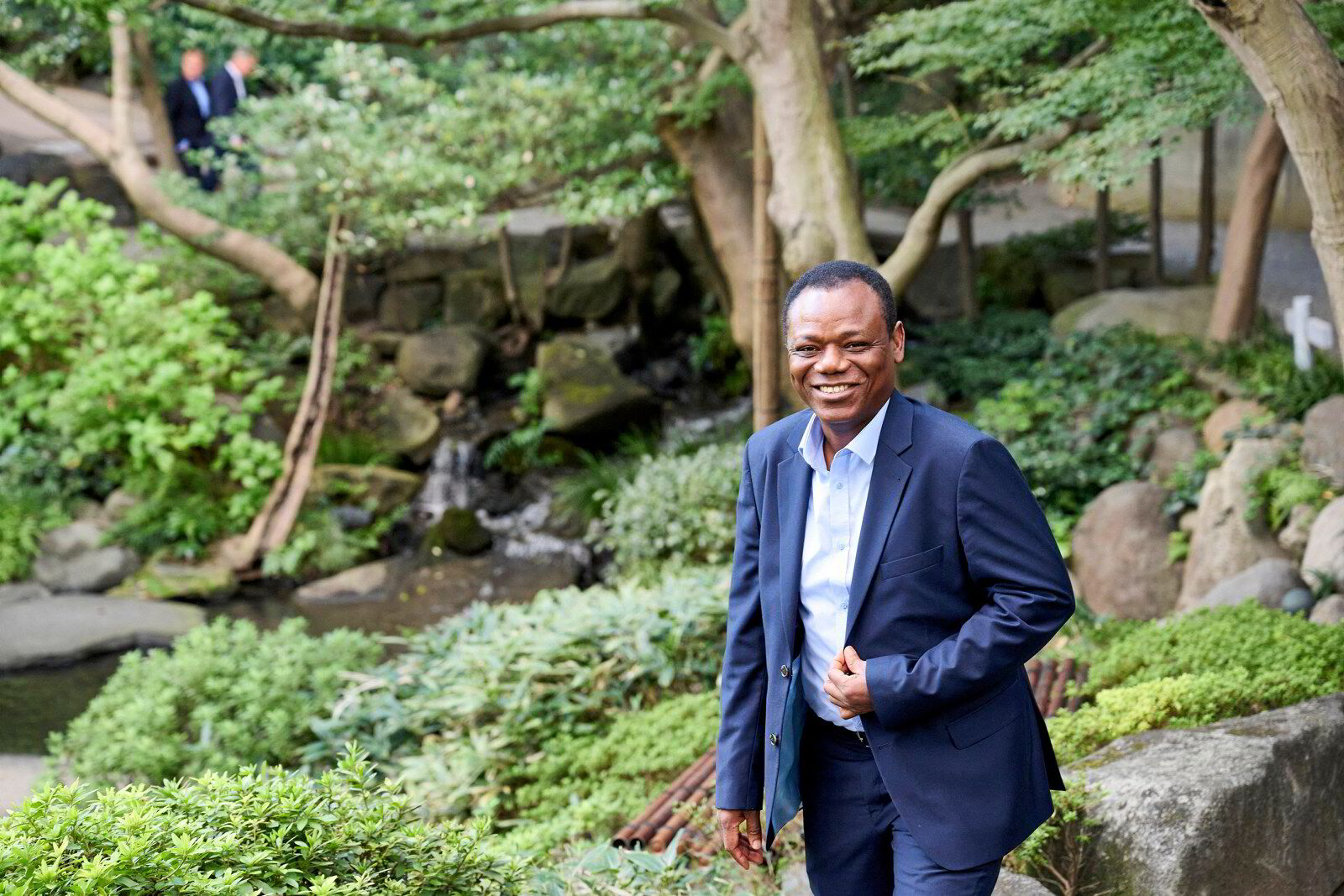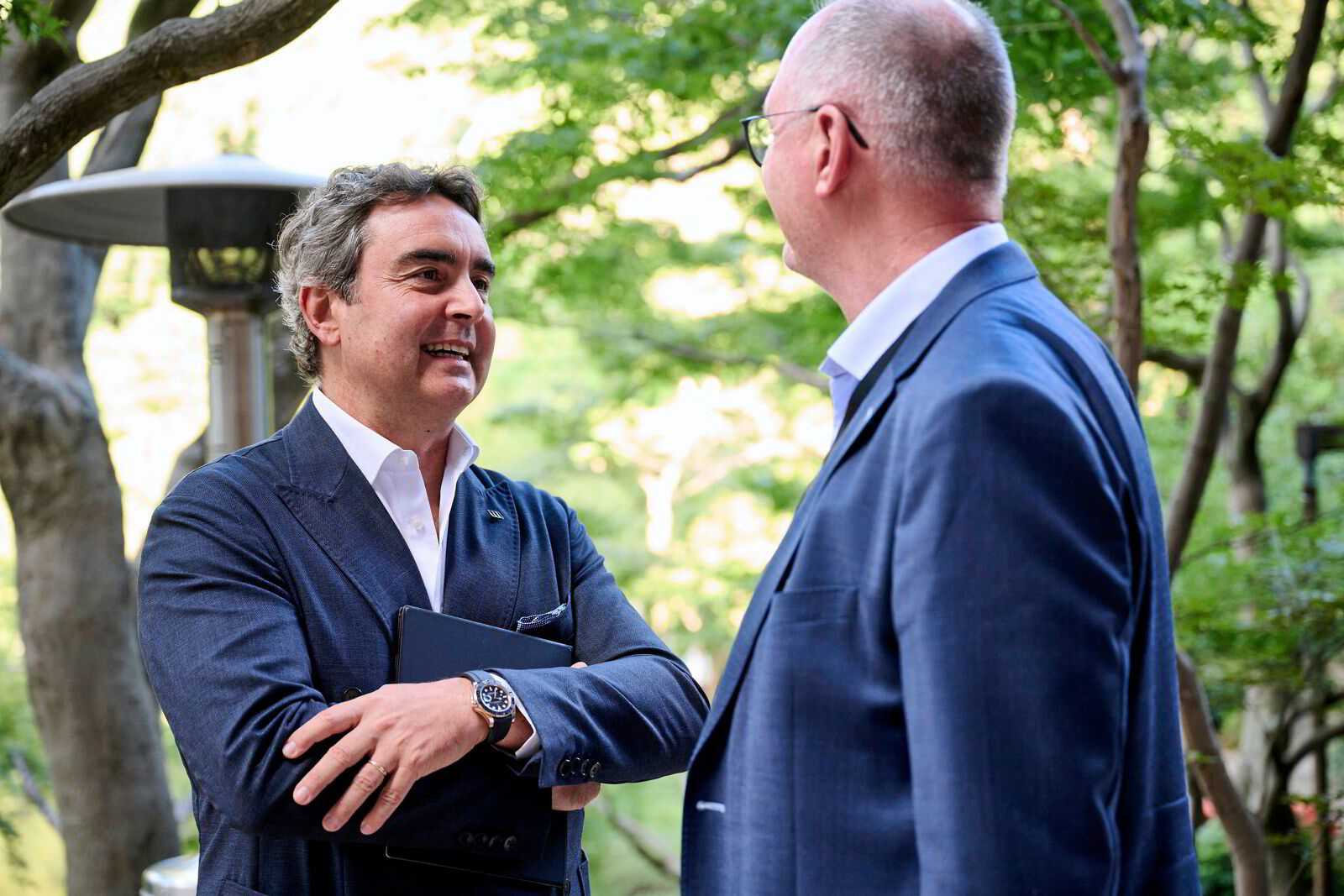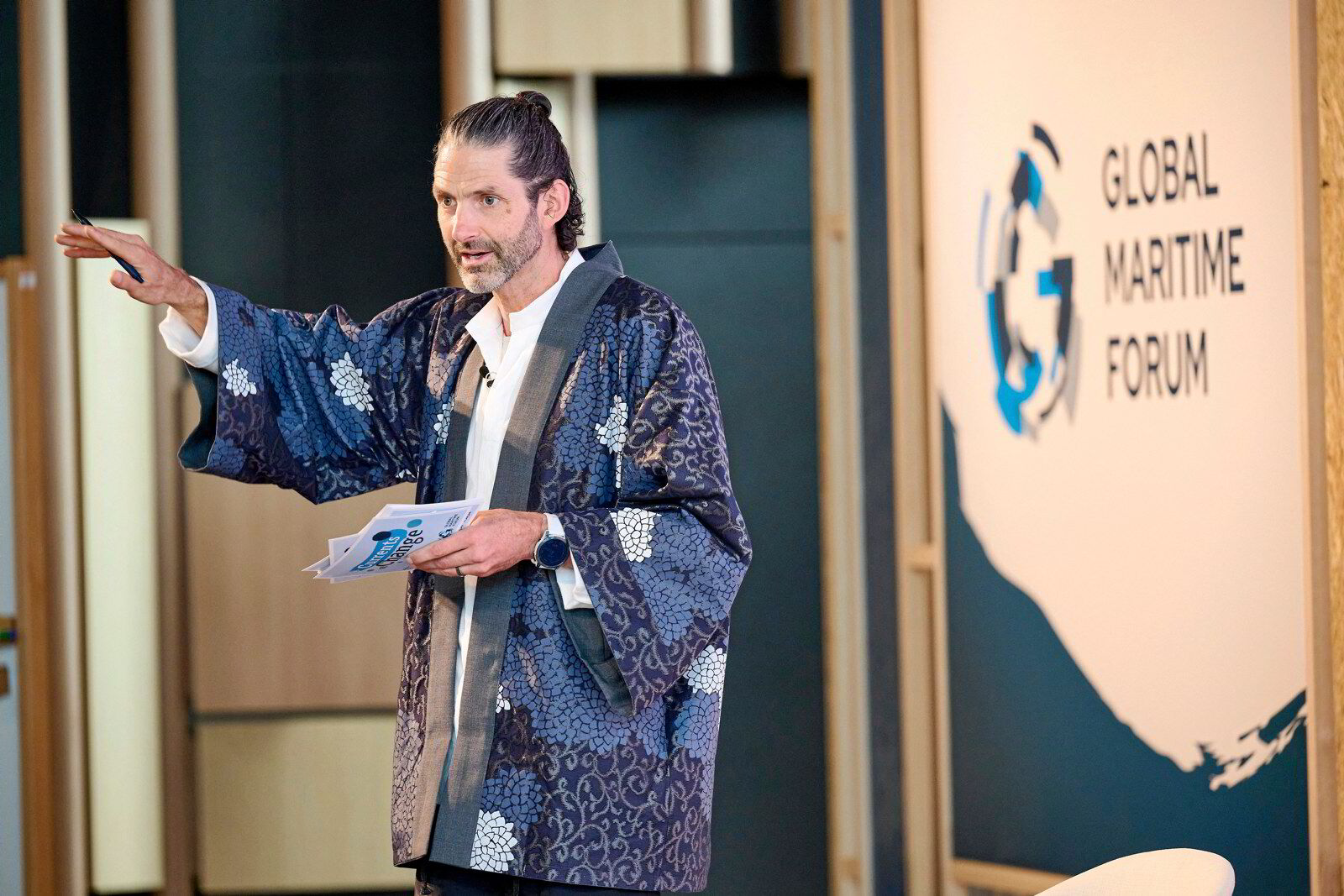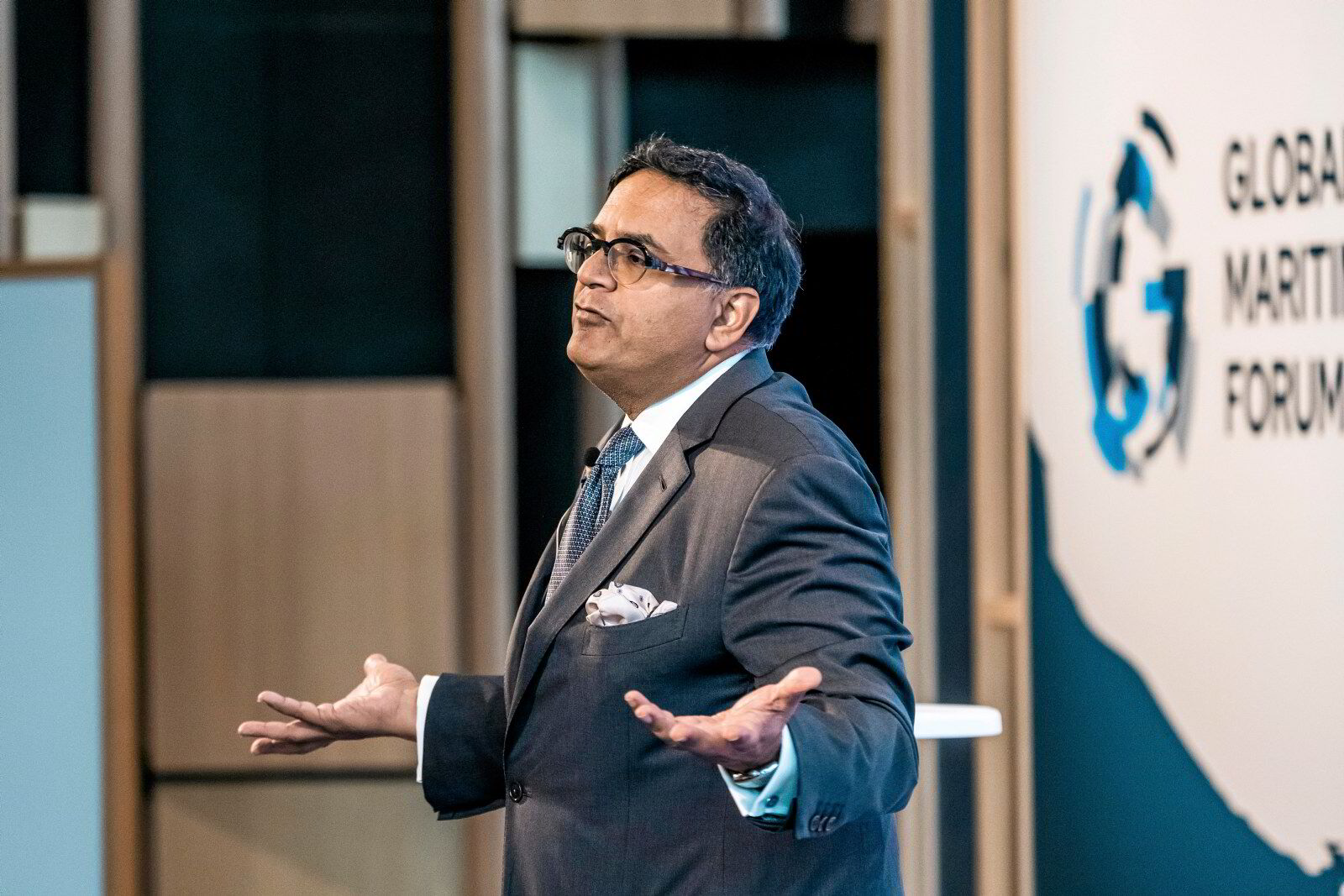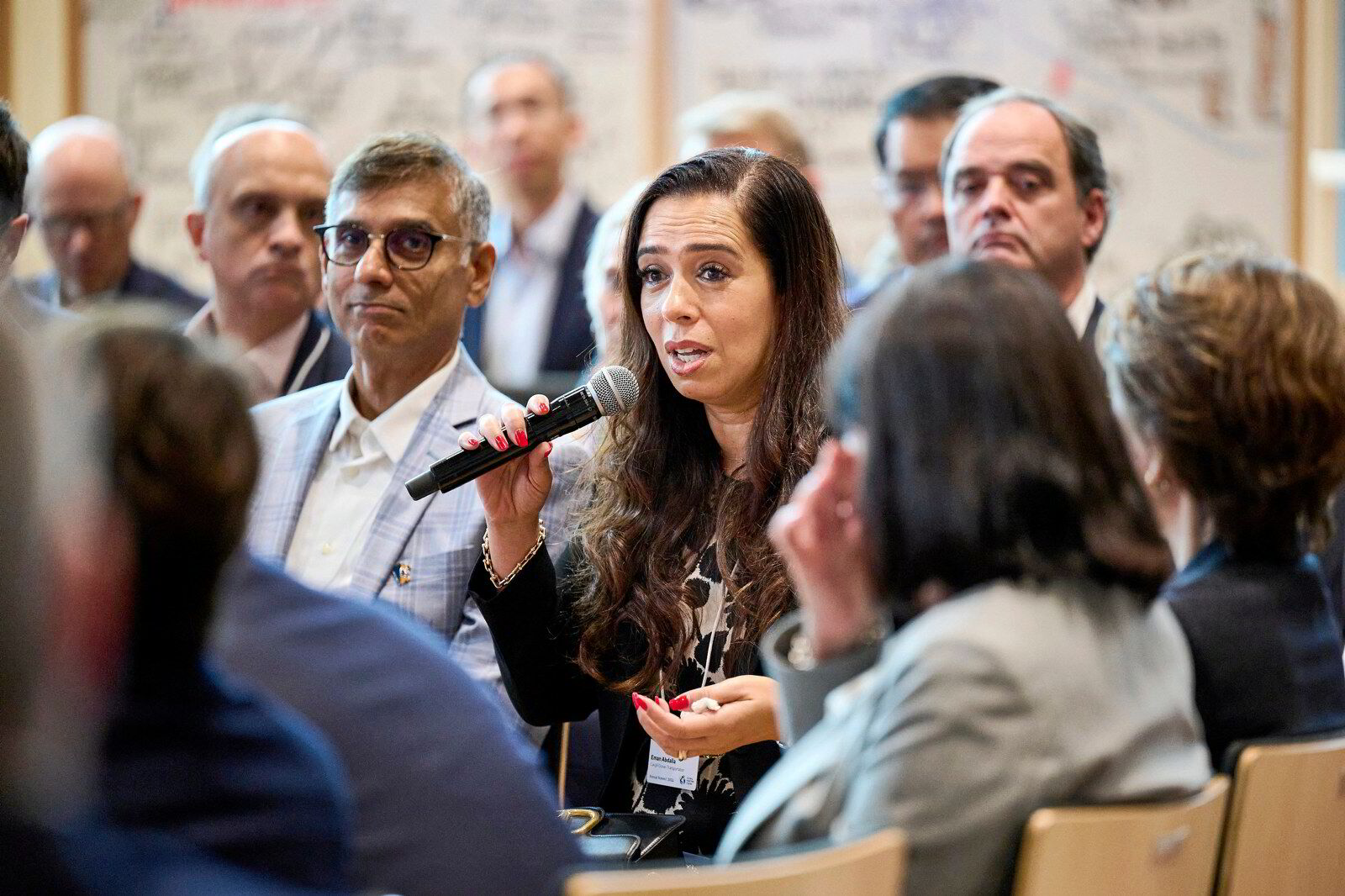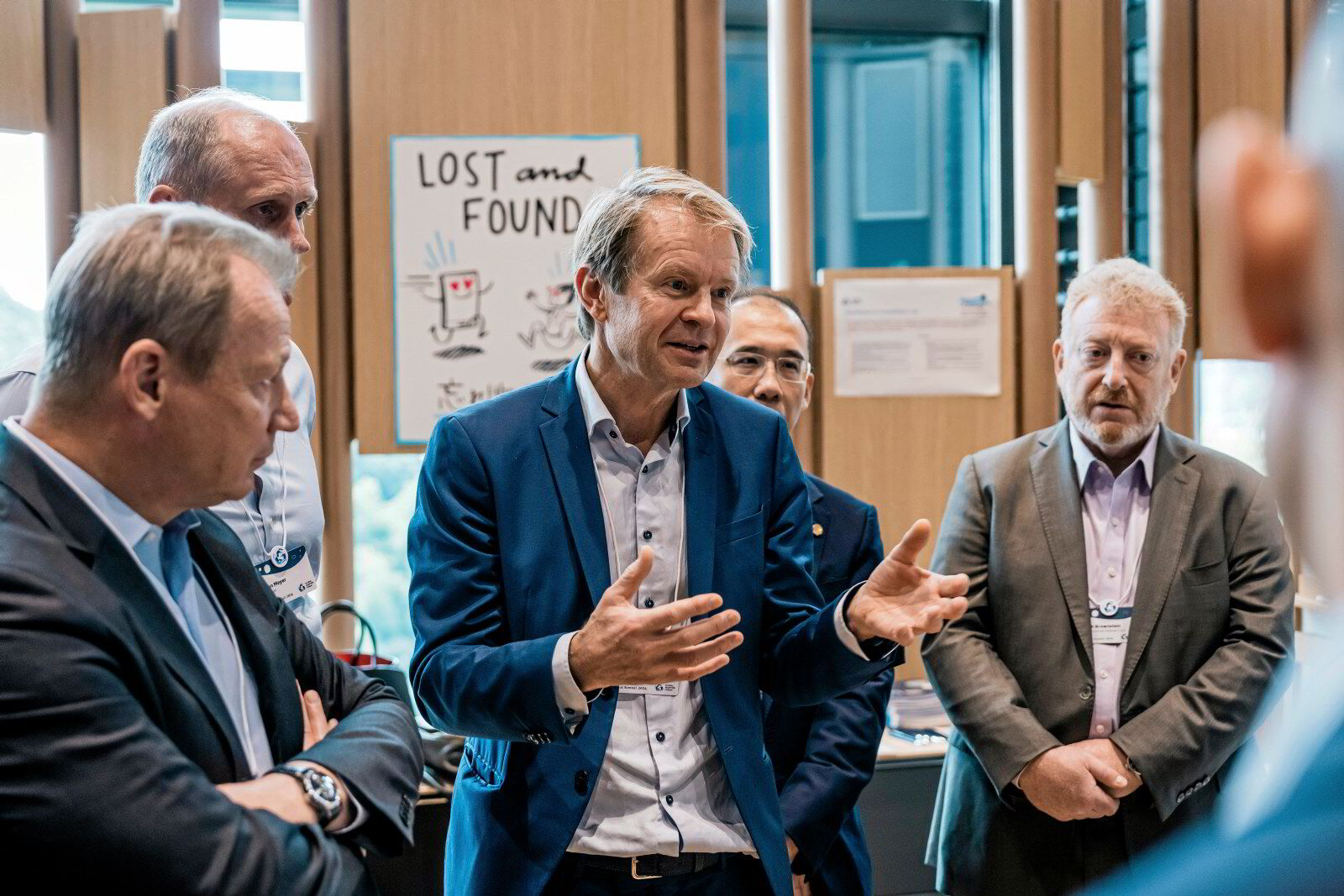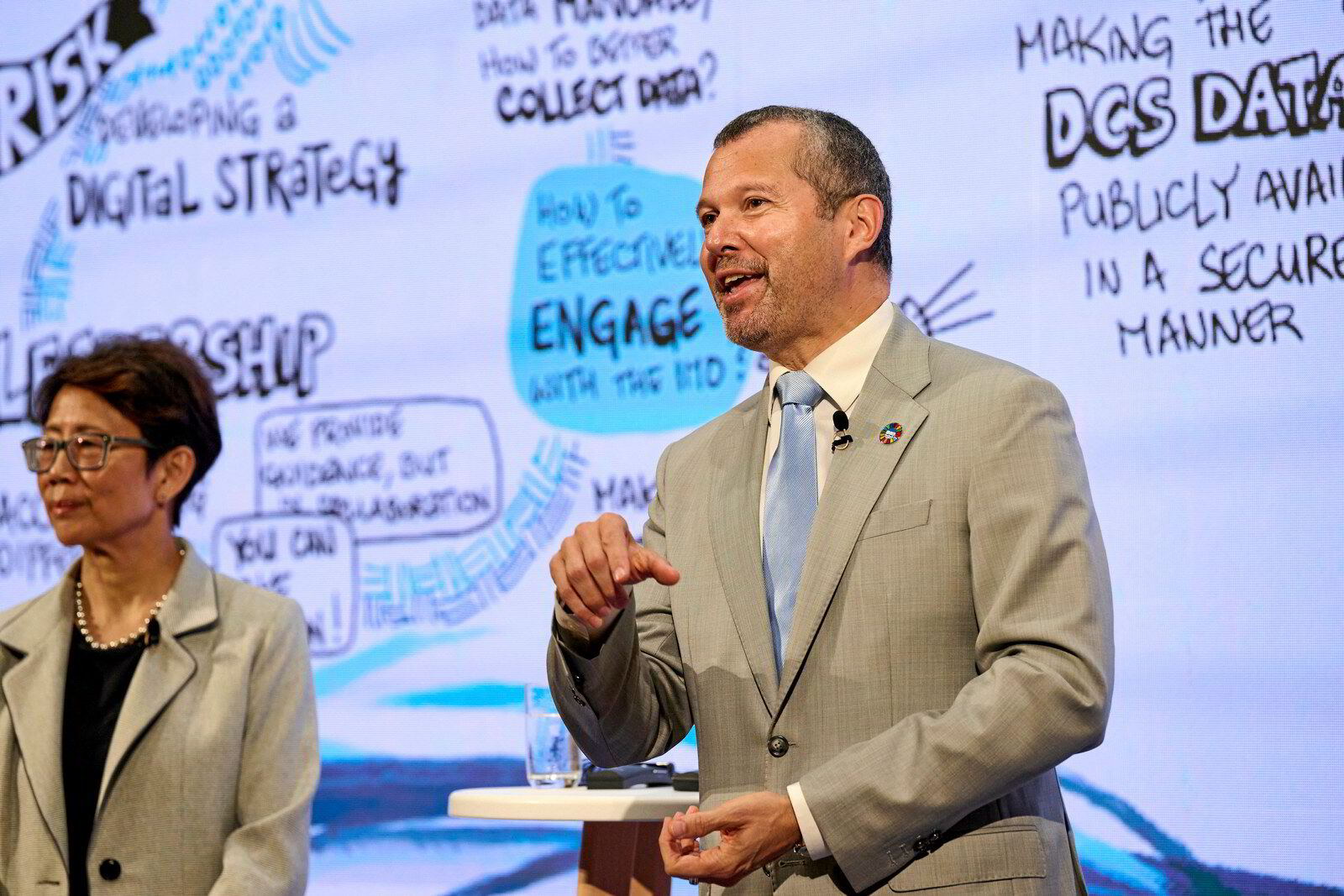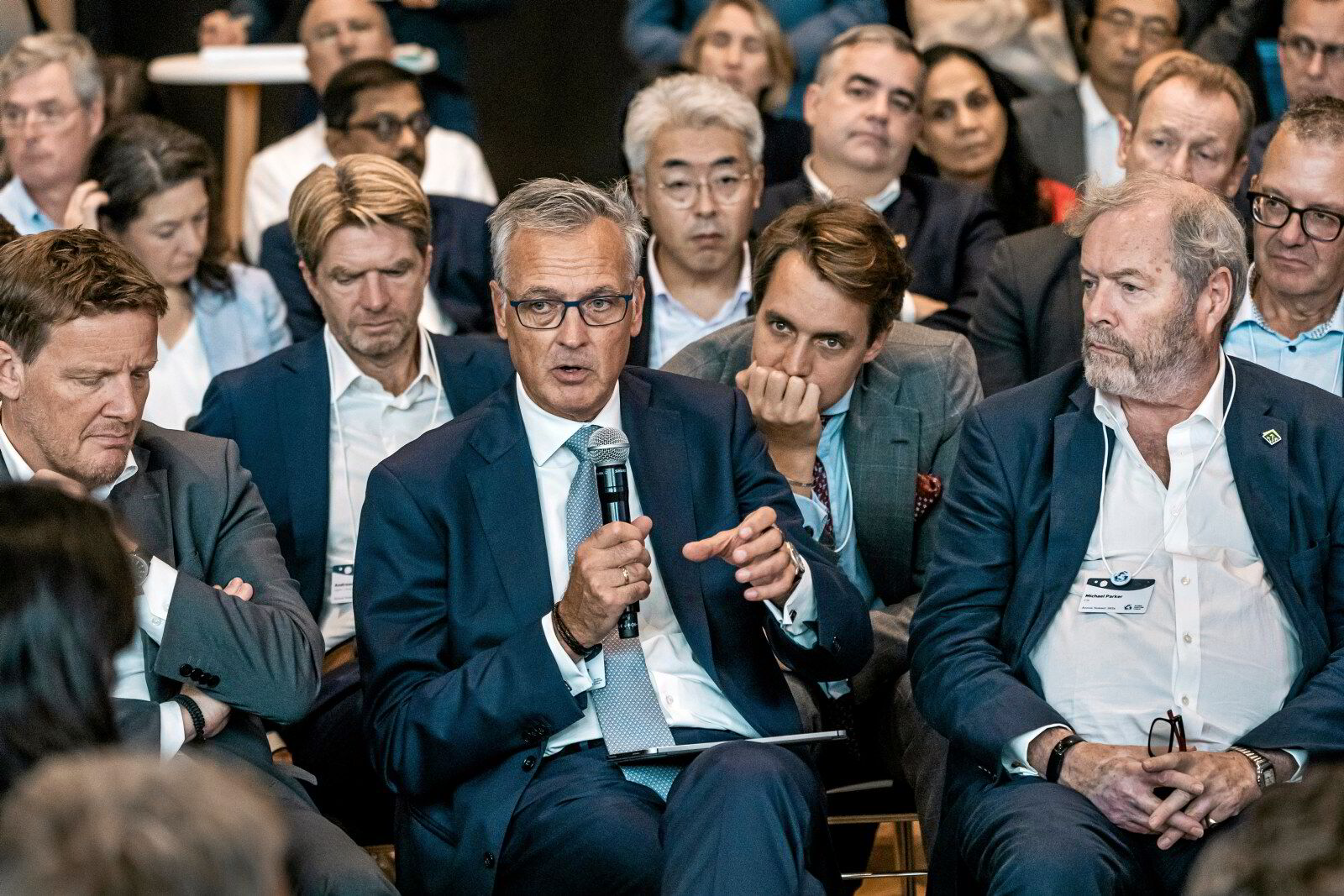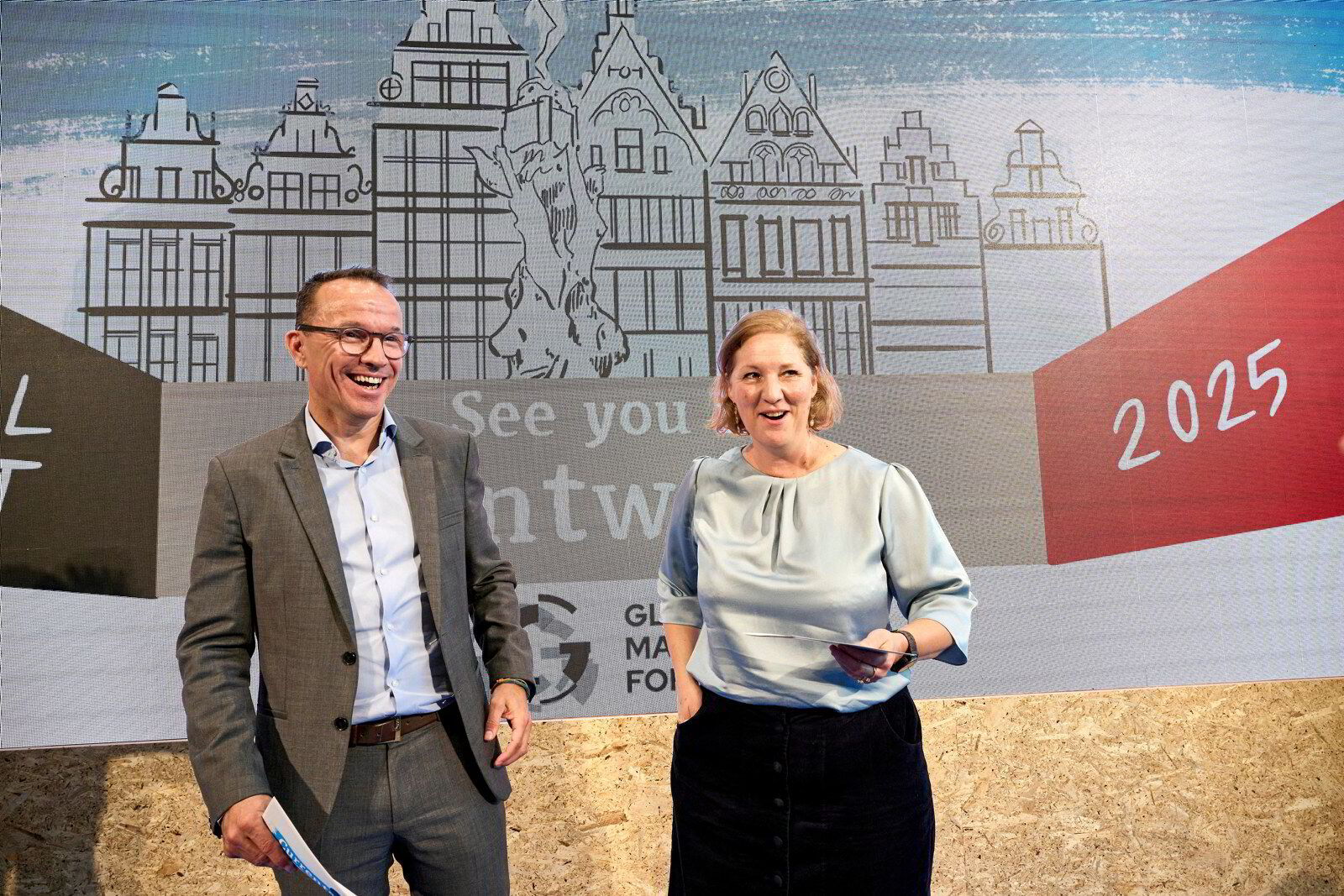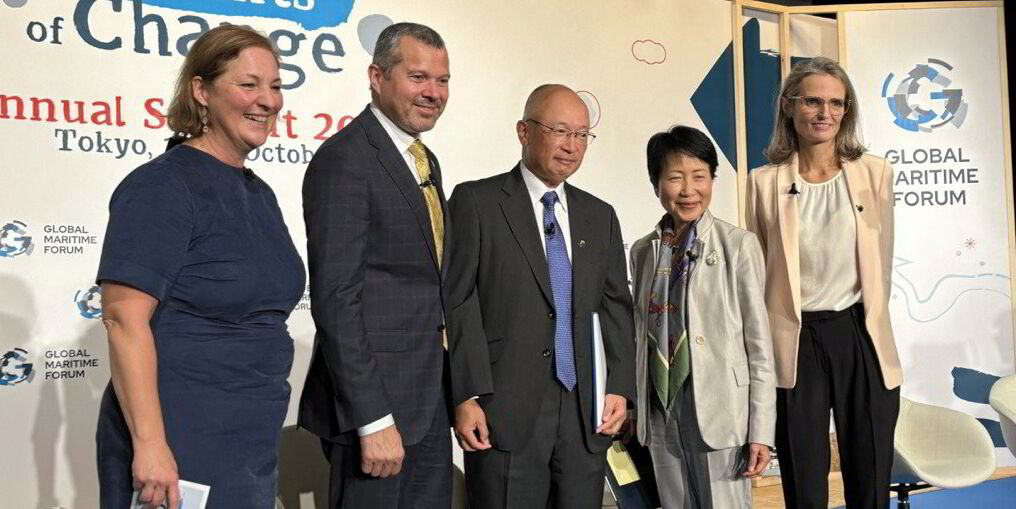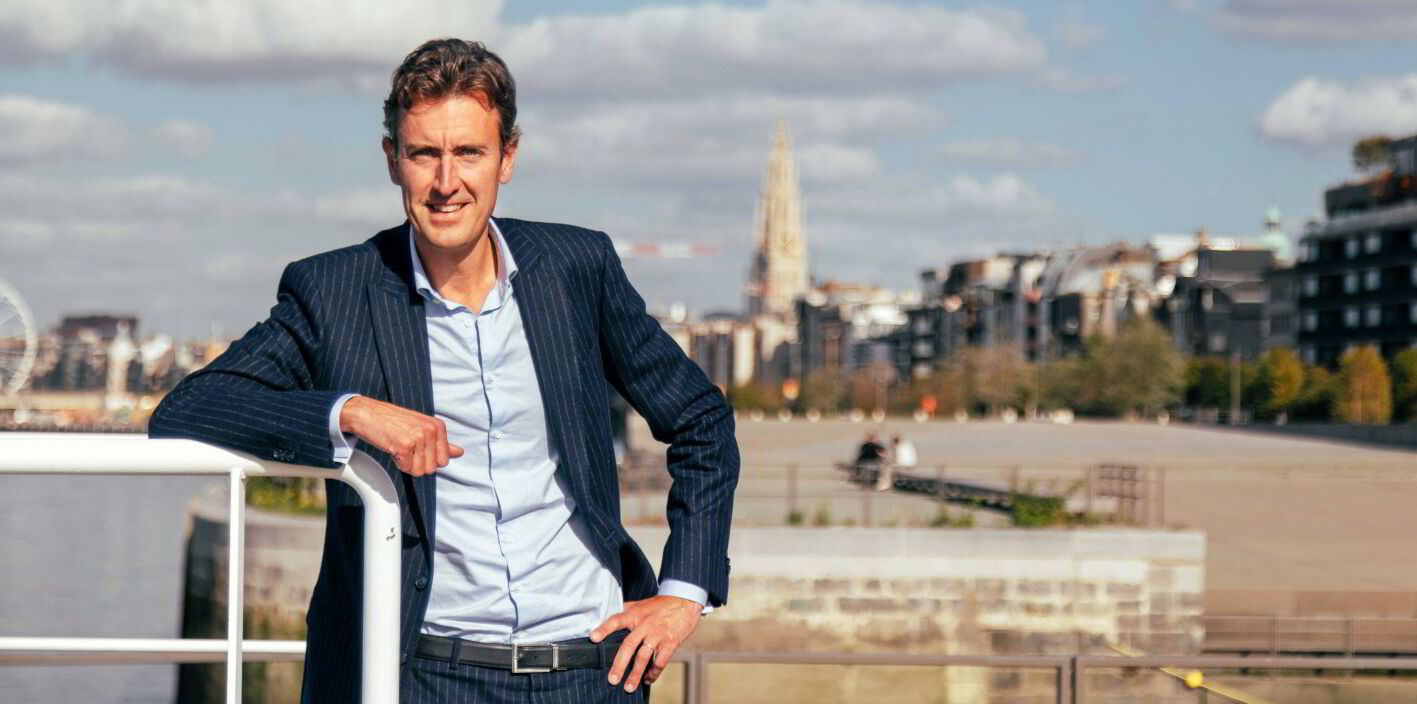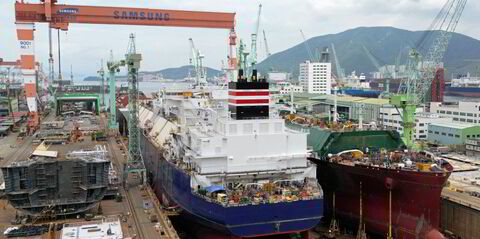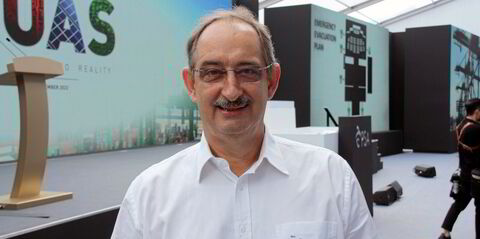Shipping’s own “mini-Davos” came together in Tokyo last week with the seventh annual summit of the Global Maritime Forum. Here are highlights of a unique event where over 200 senior executives and owners from across shipping debate the challenges facing the industry.
1. It’s governance, stupid!
Decarbonisation and the broader sustainability agenda remained at the heart of the frank and candid debate between industry leaders at the GMF. But leading lawyer Lindsay Keeble affirmed that governance of shipping is “the number one issue” the industry faces today.
The emergence of the dark or parallel fleet means that “all of the good work we are doing on sustainable finance and fuels, it’s all irrelevant if you have a parallel fleet that is operating with no regard to safety or the environment”m she said.
The industry should work with the International Maritime Organization and flag states and use data to identify remedies to failures in crew welfare, safety of navigation, and environmental and pollution risks, the managing partner of Watson Farley & Williams said with the support of Shell’s Karrie Trauth.
2. No longer ‘first movers’, but a movement
The debate around the not-for-profit organisation’s key sustainability issue of decarbonisation has now matured. Johannah Christensen, GMF CEO, said: “The conversation around decarbonisation has changed. Just a few years ago it was around ‘why’. But now it is about how, and what exactly are we going to do?”
Claus Hemmingsen, chairman of DFDS who has been involved since his time at Maersk, said: “The opposition has gone. We have a powerful voice.” While Flemming Jacobs, the former Maersk executive and one of the architects of the GMF, added: “This is no longer about the first movers, but a movement.”
3. It’s the system and narrative
Michael Parker, Citi’s global head of shipping and logistics, said the debate had moved past decarbonisation, although implementation was crucial. “What we are now talking about is the system: it’s the system of trade, it’s the system of shipping and the system of people.”
The architect of the Poseidon Principles added: “The risk we have now is that people sit back and say what a great job they have done ... We have to move forward.”
Bo Cerup-Simonsen, head of the Maersk Mc-Kinney Moller Center for Zero Carbon Shipping, said: “I think this forum is truly unique, unique with the participation, unique with the ambition.
“We are able to mature the narrative of transition at the highest level and create this robust and nuanced understanding of what is driving this transition.”
4. IMO is ready to deliver
For the first time since its launch in 2017, IMO leaders engaged with the GMF, and the message they brought was positive. The only flaw in secretary general Arsenio Dominguez’s eloquent half-hour Q&A session with delegates was that his fluency raised some suspicions of political patter.
Allied with Dominguez was the confidence of Harry Conway, the pivotal chair of the IMO’s Marine Environment Protection Committee, that a consensus agreement can be reached next year on financial measures to incentivise the use of lower carbon fuels.
5. Taxes work
While GMF delegates appeared to accept the need for an IMO-defined carbon levy, they were anxious about how the revenue could be put to best use, particularly to help build new fuel supply or to remediate climate damage. As GasLog CEO Paolo Enoizi said: “I don’t have a lot of faith in where it is going to be used.”
Avinash Persaud, special adviser on climate change to the president of the Inter-American Development Bank, said a focus on the tax revenue was misplaced. “You don’t need the revenue to drive the change. The tax will drive change, create a level playing field, and create an incentive against doing nothing.”
6. Back to basics for seafarers
Cargill’s Eman Abdalla urged the industry not to commercialise operational data that will be vital for safety and decarbonisation plans.
As one of the world’s biggest charterers, she saw ongoing problems with seafarer safety. “I have voiced my concern that we are still failing miserably in delivering the basics to our seafarers. There is a lot more work to be done. We need to focus more on getting the basics right,” she said.
7. Absent friends
From its roots in Denmark and northern Europe, the GMF has attracted major Greek shipowners, global trading houses, and banks and owners in Japan. China’s Cosco and Bank of Communications Financial Leasing sent delegates, although representation from shipping’s biggest customer nation remains thin.
More intriguing are gaps in Western representation, especially perhaps from Denmark, where AP Moller-Maersk was largely absent, while the influential UCL Energy Institute team were noticeable by their absence.
8. It’s Nobu Su!
Who was the dapper chap with the pink man-bag flitting between working groups? Is it? It can’t be? It is! It’s Nobu Su! Going by his full name Nobuyoshi Morimoto his card described him as a representative employee of Morizou, headquartered in Hiroshima.
Quite how someone who recently spent a year in one of the UK’s most notorious prisons for contempt of the High Court over a shipping debt gained access to the event dumbfounded some other delegates who knew his reputation and past. True to form, he spent the two days hawking his latest radical technology solution to whoever would listen. However, he declined TradeWinds’ invitation to speak.
9. Samurai chic
Tokyo showed its best face last week, with early autumn warmth and colours, and elegant venues courtesy of support from Mitsui OSK Lines. But it was GMF moderator Randall Krantz who stole the show, not so much with his razor-sharp and eloquent management of complex topics, but with his distinctive style instead.
Dressed in a traditional haori jacket replete with his hair in a topknot he cut a figure, even if a few traditionalists muttered about cultural appropriation. In Antwerp next year, we look forward to Krantz dressing as a beer-brewing Belgian monk, complete with shaved pate and a glass of Seefbeer.

